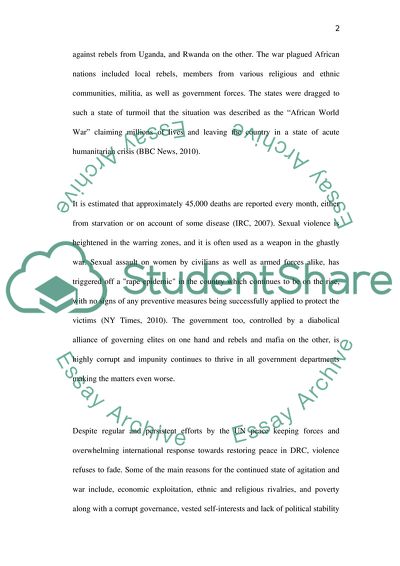Cite this document
(Violence in the Democratic Republic of Congo Research Paper, n.d.)
Violence in the Democratic Republic of Congo Research Paper. Retrieved from https://studentshare.org/politics/1738120-violence-in-the-democratic-republic-of-congo
Violence in the Democratic Republic of Congo Research Paper. Retrieved from https://studentshare.org/politics/1738120-violence-in-the-democratic-republic-of-congo
(Violence in the Democratic Republic of Congo Research Paper)
Violence in the Democratic Republic of Congo Research Paper. https://studentshare.org/politics/1738120-violence-in-the-democratic-republic-of-congo.
Violence in the Democratic Republic of Congo Research Paper. https://studentshare.org/politics/1738120-violence-in-the-democratic-republic-of-congo.
“Violence in the Democratic Republic of Congo Research Paper”, n.d. https://studentshare.org/politics/1738120-violence-in-the-democratic-republic-of-congo.


